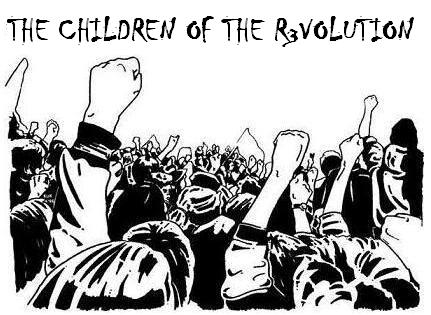 Word is just now beginning to spread that John McCain has selected Sarah Palin, Governor of Alaska, as his running mate in the 2008 presidential election. There are few people more enthusiastic about the Sarah Palin vice presidential choice than I. She is the face of a new generation of Republicans devoted to fiscal responsibility, ethical accountability in government, and common sense policy making. She lives a staunchly conservative lifestyle, but reflects the notoriously unique flavor of the state of Alaska with her affinity for mooseburgers, snowmobiling and selecting uncommon names for her five children. And, of course, she’s a woman (if you care about that sort of thing).
Word is just now beginning to spread that John McCain has selected Sarah Palin, Governor of Alaska, as his running mate in the 2008 presidential election. There are few people more enthusiastic about the Sarah Palin vice presidential choice than I. She is the face of a new generation of Republicans devoted to fiscal responsibility, ethical accountability in government, and common sense policy making. She lives a staunchly conservative lifestyle, but reflects the notoriously unique flavor of the state of Alaska with her affinity for mooseburgers, snowmobiling and selecting uncommon names for her five children. And, of course, she’s a woman (if you care about that sort of thing).Palin has proven that she is independent-minded and driven by a strong moral compass during her term as Alaska’s first female governor (and also its youngest). She is the answer to every accusation Democrats have made against Republicans for decades, and promises to render them almost speechless in their attempts to assail her character. She is also a fearless public speaker who has tangled with Congressional Democrats before in her call for them to approve drilling in her state. She balances the ticket well by countering McCain’s age with her youth and, just as Obama said of Biden, she is sure to offer constructive criticism of McCain’s policy choices should they win the White House.
However, Republicans should be aware of what potential issues this choice brings with it. Palin does not show the promise of adding any critical swing states to McCain’s coffers apart from her home state of Alaska (contributing a paltry 3 electoral votes). Furthermore, unlike Romney, she is not a proven economic guru, which many pundits insist that McCain needs on his ticket for a win. She is a relative newcomer, having served only about a year and a half of her first term, and she has not been properly introduced to the American public, who I think I can safely say are stunned by the choice. These are critical downsides to the Palin choice that I think have the potential to harm McCain come November. While I believe that she represents the new direction that not only the Republican Party but the country needs to take, politics as usual may show this decision to be folly.
In order for Palin to pay off, the McCain camp will need to ensure that she is fierce but graceful under pressure as they enter the final months before the election. My thoughts go particularly to her debate with Biden, in which she can do well if she sticks to her strengths of fighting establishment corruption (to which Joe Biden's Congress has played home), but only if she is able to parry his notoriously aggressive style.
Whatever may come, however, I applaud Senator McCain for showing this kind of courage.
For more on Governor Palin, see The Children Of The Revolution article "The Bizarrobamas", posted on August 27, 2008.
In order for Palin to pay off, the McCain camp will need to ensure that she is fierce but graceful under pressure as they enter the final months before the election. My thoughts go particularly to her debate with Biden, in which she can do well if she sticks to her strengths of fighting establishment corruption (to which Joe Biden's Congress has played home), but only if she is able to parry his notoriously aggressive style.
Whatever may come, however, I applaud Senator McCain for showing this kind of courage.
For more on Governor Palin, see The Children Of The Revolution article "The Bizarrobamas", posted on August 27, 2008.















